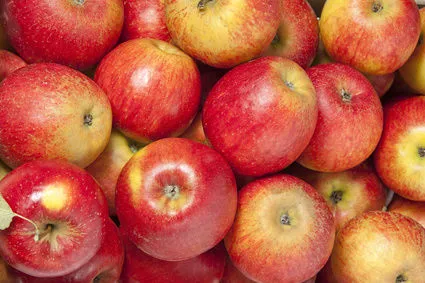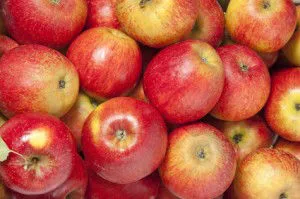
- Share on Facebook219
- Share on Pinterest
- Share on Twitter
Kidneys serve a vital role in the human body. They are responsible for filtering waste products, as well as excess water, out of the blood. After your body extracts all of the usable nutrients from the food you eat, the remaining material is sent into the blood, and the kidneys process it and send it to the bladder for elimination.
The kidneys also take in certain minerals, such as sodium, phosphorus and potassium, and releases them back into the bloodstream to control their levels. If the they are not functioning properly, the buildup of waste materials in the blood can be highly damaging. If levels of certain minerals are too high, and if your body’s fluids are not regulated by the kidneys, it can also cause serious problems.
If your kidneys are not functioning properly, it can lead to swelling of your hands and feet, difficulty urinating and an elevated risk of heart disease, among many other potential problems. The National Kidney Foundation estimates that over 26 million American adults have some form of kidney disease.
Luckily, there are certain foods you can eat to keep your kidneys healthy, and to help your body through kidney trouble if it arises.
Bone Broth
Bone broth is an ancient traditional remedy for healthy kidneys, bones and blood, one that still holds true today. The cartilage in bone broth has anti-inflammatory properties and promotes a healthy immune system, and the bone marrow supports the optimal functioning of the circulatory system, which is directly related to the health of the kidneys. It is also rich in amino acids and the minerals calcium, phosphorus and magnesium.
Note: While bone broth is a great preventative measure, if you are suffering from compromised kidney function, ask a health professional before enjoying large amounts of broth, due to the high phosphorus content.
Berries
Berries are great for maintaining healthy kidneys, as they provide a wealth of flavonoid antioxidants, which help to rid the body of free radicals. An excess of free radicals is thought to trigger a number of kidney conditions.
Berries are anti-inflammatory, and are high in vitamin C, which can support kidney health, as well as bladder health. Red berries have the added perk of anthocyanins, which have been linked to the prevention of a number of chronic illnesses, including a number of cancers.
Blueberries also a great choice for kidney health. A 2011 study on the health effects of blueberries found that along with lowering blood pressure, noted by the study to be “the second leading cause of end-stage kidney disease in the US,” blueberries also maintained the vascular function of kidneys, and raised the antioxidant defenses in the kidneys of animals.
Cabbage
Cabbage is often used to help improve kidney health in natural medicine. The phytochemicals found in cabbage help neutralize free radicals. One of these phytochemicals, sulforaphane, is associated with slowing the growth of several types of cancers, including bladder, prostate, colon, breast and ovarian cancers.
Cabbage also contains folic acid and fiber, as well as vitamins B6, C and K. Due to its low potassium content, cabbage is a great meal addition for people who are undergoing or have had dialysis, a medical process which filters waste products from the blood when the kidneys cannot perform their duties properly. Cabbage can be cooked in a number of ways, but eating raw cabbage maintains more of its nutritional content.
Fatty Fish and Olive Oil
Fatty fish (such as salmon and mackerel) and olive oil can also help keep your kidneys healthy, and may help prevent kidney disease. The omega-3 fatty acids found in fatty fish can help reduce inflammation, provide a quality source of protein and are linked to optimal heart health, including healthy blood pressure.
Olive oil contains oleic acid, which is also a natural anti-inflammatory, and antioxidants that combat free radical damage. Choose organic, extra virgin olive oil for maximum nutritional content.
Apples and Red Peppers
Apples and red peppers are two other foods that are great additions to a kidney-friendly diet. Apples have high fiber content and can help reduce inflammation. They may also help to reduce the risk of developing kidney stones, and aid in the prevention of heart disease.
Red peppers are also high in fiber, and contain the vitamins A, B6 and C, as well as folic acid. They are also rich in lycopene, an antioxidant with anti-carcinogenic properties. Red peppers are low in potassium, making them safe for a dialysis diet.
A large-scale 2009 study of over 200,000 people found that participants who had the highest scores on the Dietary Approaches to Stop Hypertension (DASH) diet components, which includes high consumption of fruits, veggies, nuts, legumes, and low consumption of salt, processed meats and sweetened drinks, were over 40 percent less likely to develop kidney stones than those with low DASH scores. Researchers noted that, “the reductions in kidney stone risk were independent of age, body size, fluid intake, and other factors.”
 If you suffer from kidney issues, it is recommended to limit your intake of potassium, phosphorus and sodium, as the kidneys may be unable to regulate excess levels of these minerals in your blood. As some kidney patients are told to reduce their intake of fluids, it is important for them to stay cool to avoid dehydration.
If you suffer from kidney issues, it is recommended to limit your intake of potassium, phosphorus and sodium, as the kidneys may be unable to regulate excess levels of these minerals in your blood. As some kidney patients are told to reduce their intake of fluids, it is important for them to stay cool to avoid dehydration.
If you either suspect or have been diagnosed with a kidney disease, be sure to talk to a health professional before you make any major changes to your diet or fluid intake, to make sure you are doing what is best for your body.
-The Alternative Daily
Sources:
http://www.top10homeremedies.com/superfoods/top-10-superfoods-healthy-kidneys.html
http://www.nytimes.com/health/guides/nutrition/diet-for-people-with-chronic-kidney-disease/overview.html
http://www.davita.com/kidney-disease/diet-and-nutrition/lifestyle/top-15-healthy-foods-for-people-with-kidney-disease/e/5347
http://www.wildblueberries.com/health/research.php
http://www.plosone.org/article/info%3Adoi%2F10.1371%2Fjournal.pone.0024028
http://jasn.asnjournals.org/content/20/10/2253
http://www.jadeinstitute.com/jade/bone-broth-health-building.php
http://www.webmd.com/a-to-z-guides/function-kidneys
- Share on Facebook219
- Share on Pinterest
- Share on Twitter

